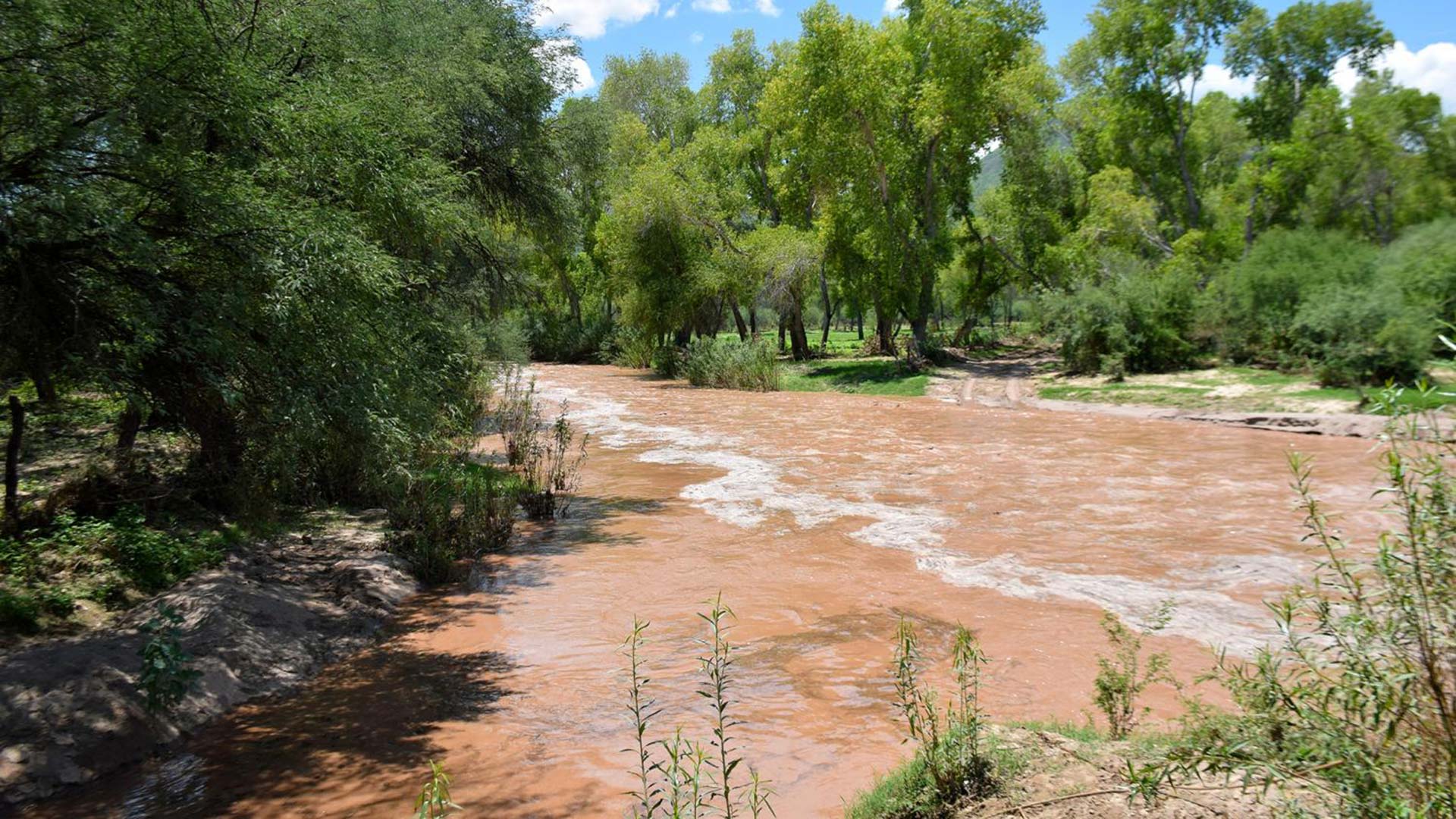 The Rio Sonora flows through the town of Baviácora, Sonora, July 30, 2019.
The Rio Sonora flows through the town of Baviácora, Sonora, July 30, 2019.
The Second Chamber of Mexico's Supreme Court on Wednesday unanimously granted legal protection to communities affected by a 2014 mining spill in the Sonora River. Residents of the communities affected by the spill hope that the ruling will provide relief they’ve been seeking for more than five years.
On Aug. 6, 2014, Mexico’s largest mining company, Grupo México, spilled nearly 11 million gallons of toxic waste from it's Buenavista copper mine into Sonoran waterways. It’s considered the worst mining disaster in Mexican history, contaminating both the Bacanuchi and Sonora rivers and affecting more than 22,000 people living downstream from the mine.
But residents say they haven't seen needed remediation, and that they weren't included in a decision to close the trust fund set up by the mining company to address the damage. They argue that the fund was terminated in 2017 before all the funds were spent and without administering the relief it was set up to provide.
Now, the court's ruling could change that, said Fernanda Hopenhaym, co-director of the non-profit PODER, which has provided legal representation for residents of the Sonora River Valley communities.
“People are really happy and have a lot of expectations," she said. “Hopefully this will be a good ruling that really beings remedy to the communities.”
The ruling, she said, affirms that the trust fund set up was closed incorrectly.
"It wasn't transparent. It didn't consult with the affected people and it didn't grant any participation to the affected communities that had a legitimate interest in the remediation process," she said.
When the court's full decision is released in a few weeks, it will detail what measures authorities need to take to complete that remediation. That could include forcing Grupo México to reopen the trust fund.
For its part, Grupo México emphasized the court’s dismissal of two other cases related to the trust fund in a written statement Wednesday.
"The facts at the moment are that two requests for relief were thrown out, and that one more was partially rejected, so its affects can't be anticipated," the statement said.
Hopenhyam, however, said she expects that the other two cases were dismissed because their outcomes are tied to this case. The Supreme Court previously postponed ruling on a case last August, instead choosing to jointly consider all three cases related to the trust fund.
"We still need to see the full ruling to understand why those cases were dismissed," she said.
But remaining questions haven't dampened most people's hope for that they're nearing a resolution.
"They're finally seeing that a small window has been opened in terms of access to remedies. And really, this has damaged their lives, in terms of their health, access to clean water, their economies," she said. "But now they're finally seeing that justice is listening."
The Arizona-based mining company Asarco is a subsidiary of Grupo México.


By submitting your comments, you hereby give AZPM the right to post your comments and potentially use them in any other form of media operated by this institution.